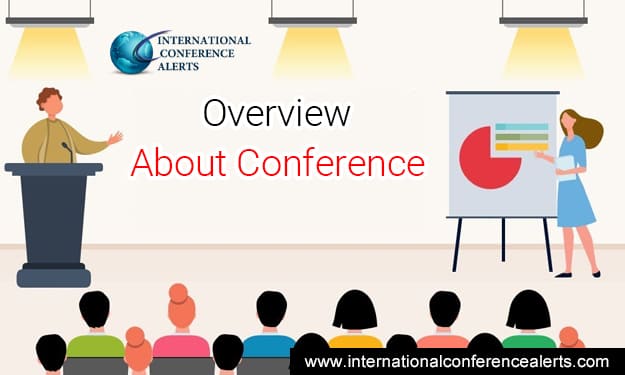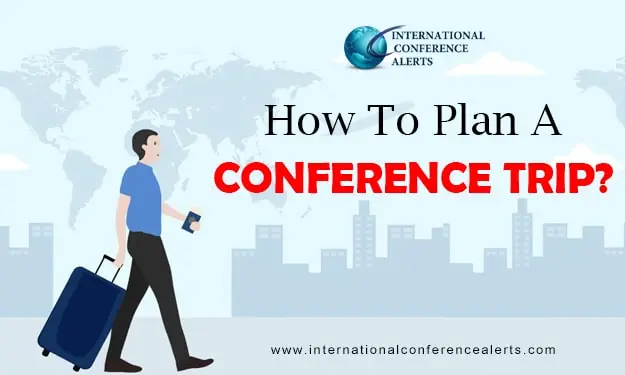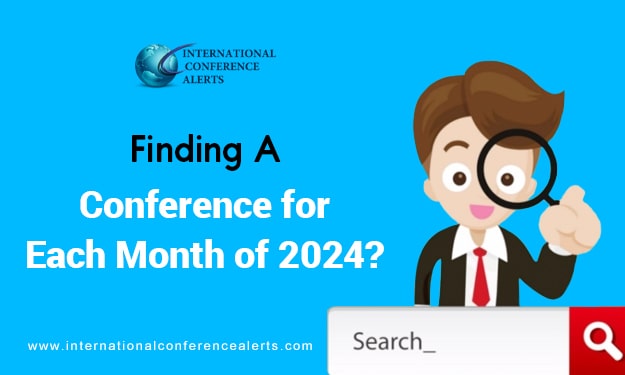A conference is a gathering of people from different backgrounds to discuss or guide some particular topics or subjects. Depending on the organizer and conference goals, it can last from one day to several days. If we talk about how many people can attend international conferences, then there are no specific rules. The structure and size of conferences vary depending on the organizer’s budget and other important things.
Most conferences have keynote speakers, session speakers, CEOs, Professionals, and industrialists who share their insights with attendees. Also, scholars, students, engineers, doctors, and professors attend international conferences from around the globe to learn new skills or the latest technology.
Often, conferences are bigger than workshops or seminars. Let’s find out more about the conference!
What is the concept of a conference?
The main concept of the conference is to give people a chance to learn about the latest technologies, sustainable solutions, updated knowledge, and more. Conferences are organized around a central theme with a carefully designed tentative agenda. Every day of the conference is filled with informative sessions, live workshops, speeches, paper reviews, awards, and refreshments.
The idea is to gather people of the same interests on the same platform to share insights, build a network, and achieve career growth. Common types of conferences include:
- Academic conferences
- Business conferences
- Trade conferences
In simple words, conferences are a hub of creativity and innovation. By attending international conferences in Asia, Europe, the USA, and other countries, you can get exposure to new ideas, emerging trends, and the latest technologies. This can add a new benefit to your research work, career, or personal growth.
What is the purpose of a conference?
Understanding the purpose of the conference is important for attendees. Here are some purposes of conferences:
Knowledge Sharing: Conferences provide a platform for researchers, scholars, professionals, and experts to share their latest research findings, innovative ideas, and best practices within a particular field. This helps advance knowledge in the field and keeps professionals updated on the latest trends and developments.
Networking: Conferences offer valuable networking opportunities. You can get a chance to meet like-minded people from various countries and can share your contact with them. This is often the most important reason to attend conferences.
Learning: Conferences often include keynote speeches, panel discussions, workshops, and presentations. All these offer you a great opportunity to learn new skills needed for your research work or office.
Professional Development: Many engineering conferences offer workshops, seminars, and training sessions that help you grow professionally. The interactive sessions on the latest trends can help you learn new leadership skills, project management, and more.
Innovation: Conferences are hubs for innovation. The gathering of experts from around the globe promotes innovation. Also, it sparks new ideas and approaches to challenges in particular areas.
All the above points help you understand why conferences are important for everyone.
Difference Between Conferences and Seminars
Conferences and Seminars are different from each other in many ways. Here are some points of differences of these two:
Conference
A conference is a gathering of professionals that brings individuals from different backgrounds and industries. It is an informative platform of sharing thoughts, insights, and knowledge. Anyone can present a paper on specific topics at conferences. Also, people get a chance to showcase their research in international conferences.
These types of gatherings consist of multiple sessions and panel discussions covering a wide range of topics. It is beneficial for researchers, scholars, scientists, professors, teachers, and professionals.
One another thing about conferences is that they are often held in hotels, convention halls, or big centres. When talking about the duration, conferences run over multiple days to cover a wide range of topics.
Seminars
A seminar focuses only on a single topic in detail. It is usually a smaller gathering of attendees. Mostly, subject experts or leaders attend the seminars to share their insights, expertise, and research. The format of seminars includes discussions, presentations, workshops, and Q&A sessions. These types of small gatherings are often held at institutes, offices, or small venues.
What is a conference alert?
Sometimes, people wish to attend the conference, but they miss the registration date for the desired international conference. This is where conference alerts are useful. These are the types of messages that you will receive for the conference registration date, paper presentation date, venue, time, and more. You simply need to subscribe to https://internationalconferencealerts.com/ to get timely conference alerts for all upcoming conferences or for the desired events. In this way, we will always update you about important dates ahead of time so you are not only able to get the benefit of early bird registration but also get time for the visa process for the conference.
Where can I find a list of conferences?
There are several websites and resources where you can find lists of conferences, both general and specific to certain industries or fields. Here are some popular options:
- Conference websites: You can find the upcoming conferences on websites such as International Conference Alerts. These platforms provide the latest information on upcoming international conferences, workshops, seminars, etc. Here, you can find a wide range of conference lists based on venue, time, topic, and country.
- Facebook groups: There are many Facebook groups that you can join to get the latest updates on conferences. Also, you can follow the conference pages to not miss the important date and to register on time.
- Google Search: Sometimes, a simple Google search for “conferences in [your field/location/year]” can help you find the best lists of upcoming conferences to attend in 2024 and beyond.
How do I apply for a conference?
Applying for a conference typically involves several steps, and the exact process can vary depending on the conference and its organizers. Here is a general guide on how to apply for a conference:
Step 1: Research
First, you need to find the conference that you wish to attend in the coming months in the desired location. Also, it could be based on your favourite venue, the topic of research, study, career, etc. To find the conference, you can check conference websites, social media pages, and Google searches.
Step 2: Registration
Once you have decided on a conference, it is time to get yourself registered for it. Most conferences require you to create an account on their registration platform. So, follow the instructions and fill in the registration form.
Step 3: Payment
Now, you need to pay the conference fees. Make sure you check all discounts, especially early bird discounts, to save money on registration. Payment can be made online or offline. Check the details on the conference website.
Step 4: Abstract Submission
Once you have completed the registration process, you can submit an abstract and paper if you want. Make sure you check the guidelines for paper submission in the conference. Pay attention to format, word limit, and content.
Step 5: Travel and Accommodation
If you need to attend a conference outside of the country, then you need an invitation letter to process your visa. Make sure you apply for a visa on time. Also, arrange all your transportation and hotel bookings for travel to attend a conference in other countries. You also need to book accommodation and transportation for attending a conference in your country but in a different city.
Tips
- Plan Early: Conferences often have limited space, and hotels can fill up quickly, so it’s best to register and book accommodation as early as possible.
- Check Visa Requirements: If the conference is in another country, check visa requirements well in advance.
- Follow-up: Keep an eye on your email for any updates or additional information from the conference organizers.
What is a conference invitation?
An invitation letter is a formal document that the conference organizer sends to participants to invite them to attend the conference. This letter is often required for visa applications, especially when you need to travel internationally to attend the conference.
Here are some common things that a conference invitation letter should cover:
- Conference Details: This includes the name of the conference, date(s), time, and location. It might also include the duration of the conference (e.g., one day, or multiple days).
- Purpose: A brief description of what the conference is about and its objectives. This helps recipients understand the focus of the event.
- Invitation to Attend: Clearly stating that the recipient is invited to attend the conference.
- Registration Information: Details on how to register for the conference, including any deadlines, fees, and registration links.
- Contact Information: In case the recipient has questions or needs more information, there should be clear contact details for the organizers.
- Special Instructions: Any special requirements or instructions for attendees, such as dress code, materials to bring, or pre-conference assignments.
What is the meaning of conference and meeting?
Both a conference and a meeting are gatherings of people but with different formats and purposes. As already discussed, a conference is a large gathering of professionals, students, and industrialists from around the globe. It takes place in hotels or big halls. Also, conferences often have a formal structure with scheduled presentations, workshops, keynote speakers, and sometimes exhibitions. The main aim of these gatherings is to share knowledge and skills and publish your research paper in Scopus Indexed Journals.
On the other hand, a meeting is a gathering of individuals, often from the same organization or group. They fix meetings to discuss specific topics and common issues or to find solutions to some problems. Meetings can range from brief, informal discussions to structured sessions with agendas and minutes. They are commonly held within companies, teams, committees, or community groups.
Importance of Conference in Education
Are you wondering why conferences are important in education? Nowadays, conferences have become an important part of modern education. Education conferences bring together students, teachers, professors, scientists, and experts from different countries on the same platform. It gives you a chance to learn about the latest developments in education from international experts, including principals, CEOs, deans, and more.
By attending education conferences, you can get a chance to meet peers, mentors, and professionals. Also, it gives you a chance to build a new network to learn and grow. It inspires you to work more. Moreover, exposure to new ideas can invigorate educators’ approaches to teaching and problem-solving.
Final Word
In a world where technology is changing every day, attending conferences offers many benefits to everyone. By knowing where the conference is happening and what is the topic of discussion, you can participate as per your interest. We hope you know everything about what is a conference, its benefits, how the conference is different from seminars and more. So. Keep checking the latest info on upcoming scopus indexed conferences and register yourself for the international conference 2024 to gain new skills and knowledge.


